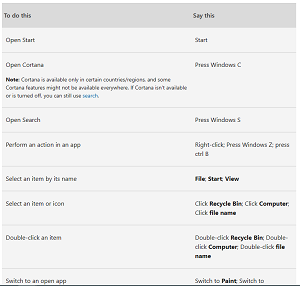Why Can't I Just Tell My Stupid Computer What to Do?
I don't get it. In the age of supercharged AI and voice-controlled devices everywhere, why do I still have to type and click to tell my stupid computer what to do?
I use Visual Studio Code for my journalistic endeavors, and to even get started writing an article I have to:
- Click to Open VS Code
- Type Control+N to open a new file
- Type Control+S to name the file and save it
- Type a customized two-key shortcut to populate the file with boilterplate HTML code
So, if I can tell ChatGPT to write an entire article (like CNET did), why can't I just emulate Capt. Picard and say, "Computer: Open up a new file in VS Code titled 'Why Can't I Just Tell My Stupid Computer What to Do?' and populate it with the regular HTML boilerplate.' ?"
Of course, I would then write the article myself, as CNET's "experiment" didn't turn out so well.
Anyway, it shouldn't be that big of a reach to tell my stupid computer what to do. There are already voice-controlled systems for smart homes, autos, mobile devices, entertainment systems, healthcare systems and more.
But if I can just tell Alexa or Siri to play a song or do any number of other things, I should be able to say: "Computer: Post a tweet tracking the location of Elon Musk's private jet" or "Computer: Fire off an angry email to my boss demanding a raise."
(Well, maybe not so much on that last one, seeing as how companies are laying off tens of thousands of workers because there just might be a recesssion on the horizion -- thus guaranteeing that there will be such a recession. Way to go stupid tech companies -- if only I could order ChatGPT to make companie stop being stupid.)
Speaking of ChatGPT, I just asked it, "Why can't I just tell my stupid computer what to do?" Here's the response:
Computers are incredibly powerful and versatile machines, but they are not capable of understanding natural language in the way that humans do. They are only able to interpret and execute specific instructions that are written in a programming language or entered into the computer in a way that the computer can understand.
Programming languages are used to give computers specific instructions in a way that the computer can interpret and execute. These instructions are often very detailed and specific, and even a small error in the code can cause the program to fail or produce unintended results.
While natural language processing and machine learning technologies have made it possible for computers to understand and respond to certain types of natural language inputs, such as voice commands or written text, they are still not capable of fully understanding and executing complex tasks without specific programming.
So while it may seem frustrating that you can't simply tell your computer what to do in the same way you would tell another person, it's important to remember that computers operate according to a specific set of rules and instructions that must be carefully crafted in order to achieve the desired outcome.
So why not infuse some NLP into PCs? Well, ChatGPT says:
Natural Language Processing (NLP) is a rapidly advancing field, and there have been significant advances in recent years in developing computer systems that can understand and respond to natural language inputs. In fact, many of the voice assistants that we use today, such as Siri, Alexa, and Google Assistant, are based on NLP technology.
However, even with the advancements in NLP, there are still limitations to what computers can understand and execute based on natural language input alone. Natural language is complex, and it can be difficult for computers to accurately interpret and understand the meaning behind what is being said or written.
In addition, even if a computer system is able to accurately interpret and understand natural language inputs, it still requires specific instructions on what actions to take in response. This requires programming skills and the ability to write code that translates natural language inputs into specific commands that the computer can execute.
Overall, while NLP technology has great potential for improving the way we interact with computers, it still has limitations and cannot completely replace the need for specific programming and coding skills.
Sorry, ChatGPT, I don't buy that answer.
My Windows OS has voice recognition which can be clunkily used for commands like:
 [Click on image for larger view.] Windows Speech Recognition (source: Microsoft).
[Click on image for larger view.] Windows Speech Recognition (source: Microsoft).
Which is a long way off from Picard-like commands like brewing a cup of tea, Earl Grey, hot. Still, there's no reason I can see that I can't just tell my stupid computer what to do, either by buying a new computer with the AI tech built in or as a hardware/software add-on.
I asked ChatGPT when we will be able to use NLP to control our PCs and it just got snotty and repetitive, starting out with, "As I mentioned earlier ...."
I really don't need AI sass from a souped-up chatbot first thing in the work week.
So maybe it's a good thing I can't just tell my stupid computer what to do. I don't want to get in a fight with an AI construct ("What do you mean I can't create a damn spreadsheet with those parameters, you ignorant hunk of metal and plastic ...") -- my blood pressure is already sky high from having to read the news as part of my job.
Now I gotta wrap and ask ChatGPT how we can keep this country from falling apart -- I hope it's not a Republican.
(btw, all opinions and snarkiness are my own, not my employer's.)
Posted by David Ramel on 03/06/2023 at 9:38 AM